February 28, 2017
Improve SEO on Your WordPress Site
There’s a reason one-quarter of the world’s top 10 million websites are built on WordPress: it’s a user-friendly platform that allows business owners to customize the audience experience with ease. From full design control to extensible functionality, WordPress empowers organizations to build websites that deliver brand messaging, engage users, and generate leads.
One of the most effective methods for digital lead generation is SEO, so much so that 66 percent of marketers rank it among their top strategy priorities. Luckily for businesses with sites built on WordPress, it’s an absolute breeze to tweak your site to improve SEO.
WordPress SEO Basics
While every business can benefit from the expert guidance of an SEO professional, a website marketing staff member should have no problem making standard adjustments to your WordPress site. There are a variety of simple tweaks you can make after you’ve done some basic keyword research, such as:
- Title Tags: You’ll need to use an SEO plugin (which we’ll cover) to edit title tags to improve SEO visibility, particularly on home pages and blog posts. These tags name each page or post so craft them wisely.
- Meta Tags: These are keyword-rich descriptions that detail the contents of each page of your website with clear calls-to-action.
- Permalinks: Customize the URLs for each page and post on your site so the destination matches the title and meta tags.
- Alt Attributes: Add these keyphrases when you upload an image anywhere on your website.
- Crosslinking: Make it simple for users to learn more by including relevant internal crosslinks to pages and posts on your site.
Install WordPress SEO Plugins
There are a lot of WordPress plugins for a multitude of varying purposes, including search engine optimization. Your web developer and SEO expert should work together to determine the best WordPress SEO plugins for your website. Building in these plugins increases usability, visibility, and overall SEO.
Research Keywords
Knowing what keywords to incorporate into your website begins with solid research. You start by examining Google Analytics to determine which keywords are already associated with your website. From there, your marketing expert should work with you to create a list of keywords and/or keyphrases that are the primary focus on your website. Head over to Google’s free keyword research tool to hone in on the best terms and phrases to mix into the content you’re going to write for your site. The use of these keywords not only helps your SEO efforts but can also guide your content marketing endeavors.
Post SEO-Friendly Content
When writing content for your website and/or blog, always write for your audience, not for SEO. If you are writing for website crawlers, no actual person is going to read or engage with your website. Address users like they are real, living human beings. Once you’ve drafted your copy, then find ways to incorporate keywords or phrases and practice interlinking to improve SEO. Earlier, we mentioned crosslinking, which should be used when creating website content so users can easily navigate to other important pages on your site.
Additionally, posting SEO-friendly content to your small business website should be an ongoing process. For instance, regularly publishing new blog posts bolsters your overall search rankings, while providing promotable content for other marketing channels. Continually providing well-written, keyword-rich content to your audience and crawlers is a surefire method for better SEO.
Feed the Search Engines
XML(Extensible Markup Language) sitemaps are developed and managed by site administrators for the specific use of search engines. A sitemap is the data that explains to search engines what is on your website. A site administrator feeds this information to search engines so they can crawl and rank your website. For websites built on WordPress, an XML sitemap also tells search engines how often you update your website and which links are the most important.
Keep in mind that an XML sitemap does not directly affect your website’s SEO rankings but it is absolutely invaluable to it. The data communicated via a sitemap is how search engines know where to index your content. Luckily, with any standard WordPress SEO plugin, you can easily build an XML sitemap for your website.
Monitor Performance with Google Analytics
You are flying blindly if you are not measuring how your audience interacts with your website. Fortunately, installing Google Analytics on your WordPress site provides you with invaluable insights that allow you to take educated action to improve lead generation and marketing efforts. After your team has made SEO updates to your site, gauge its effectiveness with the data provided by Google Analytics.
Ongoing WordPress SEO Maintenance
Consider a website a living entity that needs continuing care. If you don’t maintain your WordPress site, it’s only a matter of time before your SEO efforts go stale. For a busy entrepreneur, you probably don’t have the room in your schedule to maintain your website. Work with a WordPress maintenance team that will keep everything working and up-to-date on your website. Contact Proactive WP today to discuss plans and pricing.
